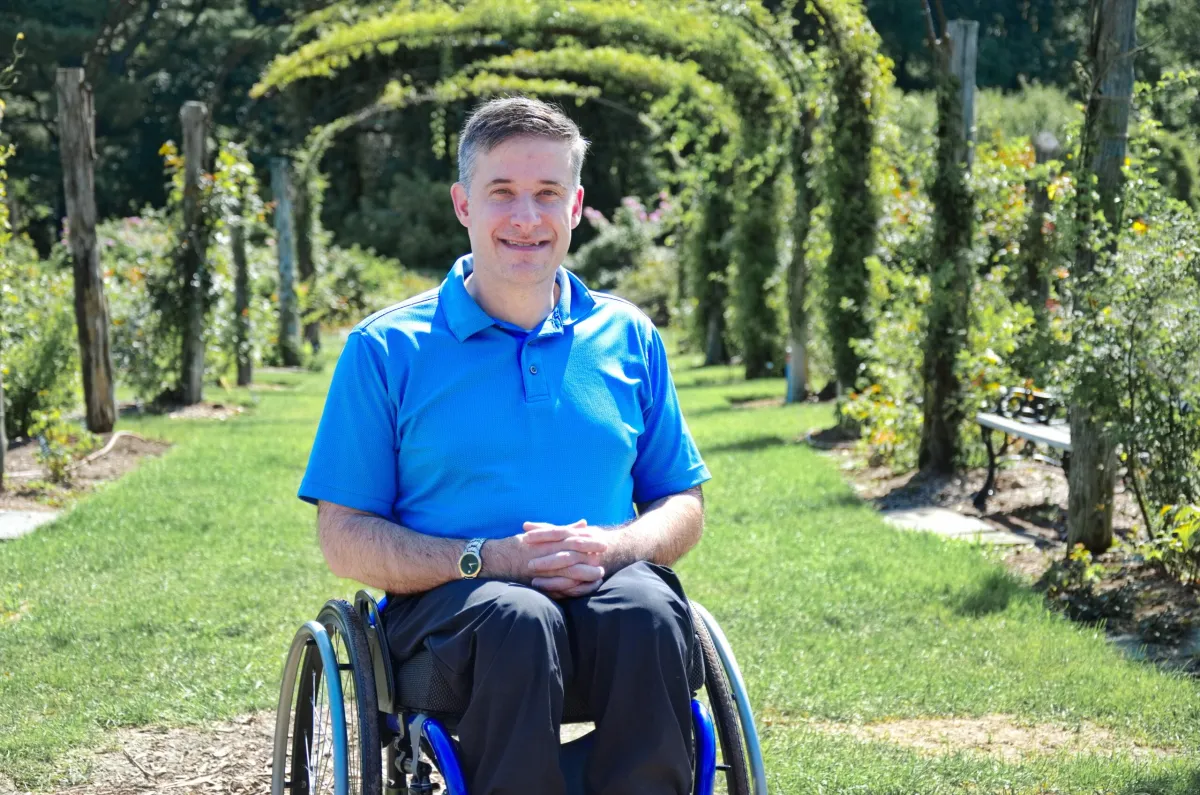JON'S MOTTO
MY STORY IS NOT ABOUT OVERCOMING DISABILITY, IT'S ABOUT REIMAGINING POSSIBILITY.
WATCH NOW
WHAT IS INSPIRE UNIVERSITY?
Inspire University or, “Inspire U”, is a 360° approach to the concepts of inspiration, motivation, and learning. As eternal students in life, I believe that we all should look for opportunities to inspire and motivate others
while constantly seeking knowledge and growth.
Inspire University Provides Keynotes and Community Talks. Along with your company, corporation, or organization, it is my sincere hope that we can all inspire, motivate and learn together.
“Take the attitude of a student, never be too big to ask questions, never know too much to learn something new.”
– Augustine Og Mandino
LEADING DISABILITY SPEAKER
Revolutionizing the way you think about disability in your organization, in your life, and in the world.

Hi, I'm Jon Slifka.
Trailblazer.Leader.Advocate.
Throughout my entire life, I have broken barriers.
Growing up in West Hartford, Connecticut, at every turn I was the first person with a disability to take the path I followed. The first one to be mainstreamed through the public school system. The first one in the state to play in the Little League. The first Connecticut student in a wheelchair to play on a high school tennis team.
I didn’t always realize I was traversing new ground, I just felt I was headed in the right direction.
JON SPEAKS TO:
COMPANIES AND ORGANIZATIONS
NON-PROFITS
SCHOOLS

JON'S MISSION
TO REVOLUTIONIZE THE WAY YOU THINK ABOUT DISABILITY IN YOUR ORGANIZATION, IN YOUR LIFE, AND IN THE WORLD.
The Disability Community is the largest community in the U.S., representing over 50 million people across every race, gender and identity-yet it remains one of the most underrepresented and overlooked groups. Fear, stigma, and inaccessible systems prevent individuals from self-identifying, while organizations often lack the knowledge or resources to engage with this untapped talent pool. My mission is to bridge this gap by helping organizations build cultures where people with disabilities are not only seen and heard but empowered to thrive.
Through my keynotes and community conversations, I challenge misconceptions, offer practical strategies for fostering inclusion, and guide organizations toward actionable change. The result? A culture that not only embraces diversity but benefits from the unique perspectives, talents, and resilience of the Disability Community.
JON INSPIRES
"I had the pleasure of working with Jon on the Police Transparency and Accountability Task Force. Jon’s dedication to advocating for the disability community was evident in everything they did. He brought a wealth of knowledge and experience to the table and was always willing to go above and beyond to ensure that the needs of the disability community were being heard and addressed. Jon’s passion for his work is truly inspiring, and I have no doubt that he will continue to make a positive impact in the community."-Daryl M.
JON MOTIVATES
"Jon has been a tireless advocate for people with disabilities throughout their career. As a member of the Developmental Disabilities Working Group, I have been constantly impressed by Jon’s dedication and commitment to improving the lives of individuals with disabilities. He has a wealth of knowledge and experience in this area and is always willing to lend his expertise to help move important initiatives forward. I am grateful to have had the opportunity to work with Jon and can confidently say that he is an invaluable asset to any team."-Tom F.
JON TEACHES
"I have had the pleasure of working with Jon on several projects over the years, and I am consistently impressed by his passion and dedication to advocating for people with disabilities. He brings a wealth of knowledge and experience to the table, and his ability to connect with others and build meaningful relationships is truly exceptional. Jon is an invaluable asset to any team and I am grateful for the opportunity to have worked with him."-Henri A.
JON LEADS
"Jon is an incredible advocate for the disability community. As the Governor’s Liaison to the Disability Community, he worked tirelessly to ensure that the needs of individuals with disabilities were being heard and addressed at the highest levels of government. His dedication to improving the lives of people with disabilities is truly inspiring, and I am grateful to have had the opportunity to work with him. Jon is a valuable asset to any team and I have no doubt that he will continue to make a positive impact in the community for years to come".-Liz D.
BOOK JON FOR YOUR ORGANIZATION
Book me to inspire your team and transform your efforts by unlocking the potential of the Disability Community through authentic stories, actionable strategies, and a commitment to inclusion.
